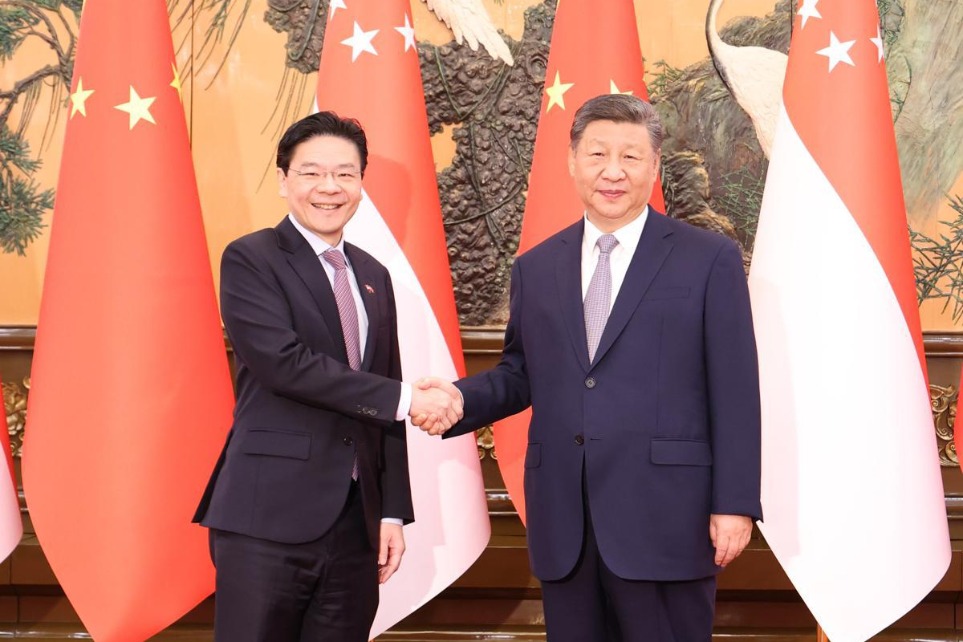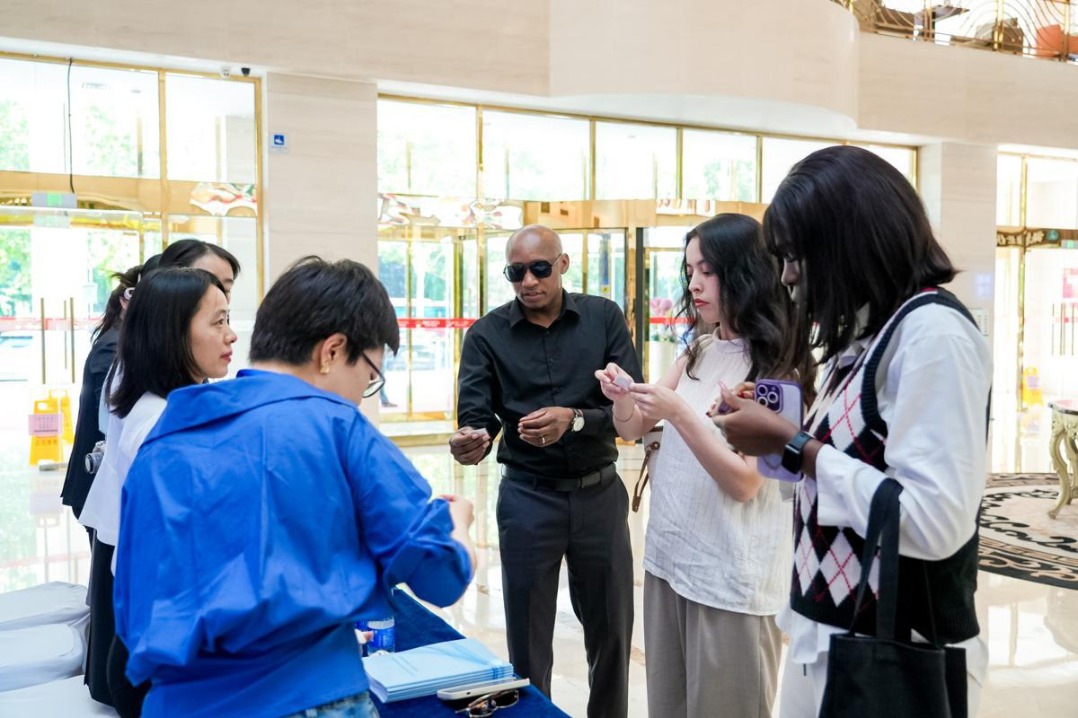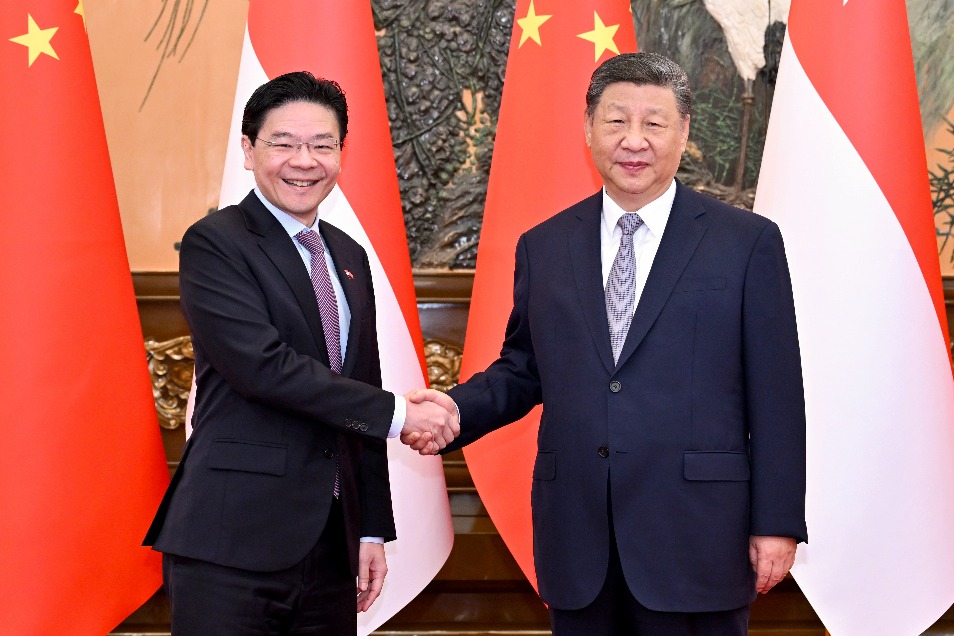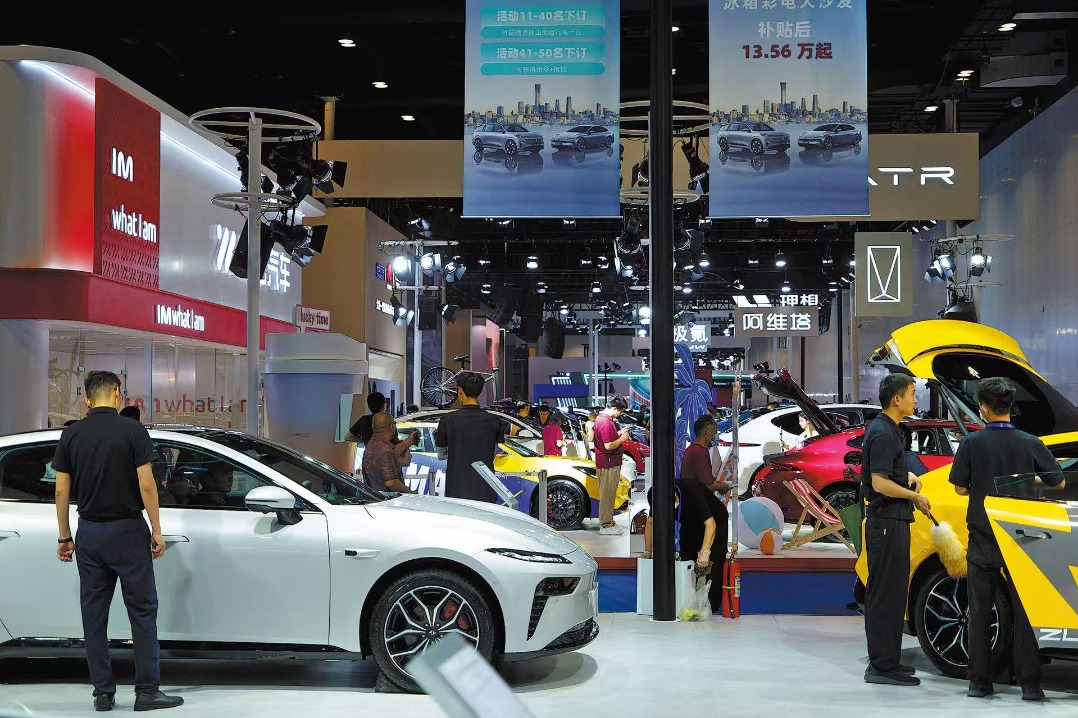Disabled baristas take a shot at new careers


Building skills
Last year, Hinichijou opened a new branch in Shanghai specifically for 24-year-old twins, Yin Tianbao and Yin Tianyou, who have been visually impaired since birth.
In November 2021, Yin Tianbao, the older brother, began learning coffee making from the trainers at Hinichijou. He faced challenges in accurately determining the cup size and water level, sometimes pouring too much water.
When it came to making lattes, he was sometimes imprecise and spilled milk on his hand. Eventually, the right moves were committed to his muscle memory.
Yin Tianbao took six months to master coffee making, especially "latte art". Drawing on his big brother's experience it only took Yin Tianyou a month to become a competent barista.
With the experience of training the twins, Hinichijou last year established a training school for people with disabilities as well as able-bodied people.
At its smaller branches operated by visually impaired people, Hinichijou is exploring a business model that replicates site selection, product design, long-term planning and system training.
Wang said the cafes should be located on a route that white-collar workers pass by during their commute and have easy access. The floor space should be small to keep rent low.
On the product side, Wang said that 70 percent of the orders should be lattes, with an option for higher priced milk. "This will increase our costs significantly, but it also enhances the taste of the coffee," he says.
The newly opened store run by visually impaired baristas was constructed in just four hours. Wang has developed an efficient method to replicate a coffee store for people with visual impairment. The cafe is divided into several sections that are assembled like Lego bricks.
"The layout inside the store is an exact replica of the training environment in our coffee school," Wang said, adding that familiarity is essential for visually impaired people's movements as well as operational efficiency.
After completing training, visually impaired people can then return to their hometowns and open their own stores.
The twins' ability to successfully make a latte is also attributed to a specially customized set of intelligent machines and programs. Wang says their team is also designing a machine that makes milk tea or ice cream so that the visually impaired people have more options to open small businesses.
With the help of engineers from Meituan, Hinichijou recently found a solution for visually impaired workers to get details of takeout orders. He is also designing a special cafe for people in wheelchairs.
Hinichijou is planning to expand to 100 stores across the nation by the end of this year, providing more employment for people with disabilities. They have also leased two farms in Yunnan province, where they grow their own coffee beans. They handle the roasting and flavor design themselves, and have also employed many local hearing-impaired people.
However, for smaller players in the coffee industry like Zhang from Jingmo, survival is a more immediate concern.
The COVID-19 pandemic forced him to close two of his cafes, leaving the remaining one in the Dongcheng district hutong. The space is shared with a partner who turns the cafe into a bar at night.
"I hope I can find investors to sustain the cafe's operations," Zhang said, adding that the increasing number of cafes opening in Beijing over the past two years has made competition quite fierce.
























